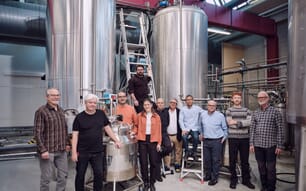
According to a press release from Feedback - an environmental campaign group - more than 70,000 people have called for the restaurant chain to drop farmed salmon from its menu, following a campaign which sought to reveal the impacts of farmed salmon on the environment, wild fish populations and salmon welfare.
According to Feedback, salmon farming is responsible for the extraction of millions of tonnes of wild fish from our oceans every year, to be used as ingredients for aquafeeds. The majority of salmon sold in UK restaurants is farmed in Norway, where nearly 2 million tonnes of wild fish a year is used to feed salmon. Additionally, Feedback claims that a significant share of the fish oil used in Norwegian salmon farming is imported from Northwest Africa, a region facing acute food insecurity. They state that the fish used to produce this fish oil could have provided up to 4 million people in the region with a year’s supply of fish sufficient to meet their nutritional needs.
The campaign group also highlighted the potential of salmon farms to act as reservoirs of infection for parasites such as sea lice, which can transfer from farmed salmon to wild populations. In Scotland, where salmon are also farmed, the resultant sea lice infections can prove fatal for native Atlantic salmon, which were classified as ‘endangered’ by the International Union for the Conservation of Nature in December last year, according to a press release from Feedback.
The campaign group claims that the decision of the restaurant chain to include farmed salmon as part of their menu is hypocritical given their goals to ‘tread more lightly on the earth’. The campaign to encourage the removal of these products was launched after Wagamama failed to respond to several letters from NGOs asking for clarification on its farmed salmon sourcing standards.
"There’s nothing positive about what happens in Wagamama’s farmed salmon supply chains; not for the planet, not for our wild ecosystems, and certainly not for communities. Now that Wagamama’s customers have made that clear, it’s a cynical choice to keep farmed salmon on the menu,” commented Liam Lysaght, a campaigner for Feedback.
"The damage being done by open-net salmon farming to our environment, the health and welfare of wild and farmed fish, and global communities is clear to see. This unsustainable industry has lost its social licence; the sheer number of UK and international chefs and restaurants choosing to remove farmed salmon from their menus is testament to this," stated Matt Palmer, a campaign manager for WildFish.
The campaign groups hope that a response from Wagamama, a restaurant which markets itself as a sustainability leader, may set a precedent for the place of farmed salmon on hospitality menus.




